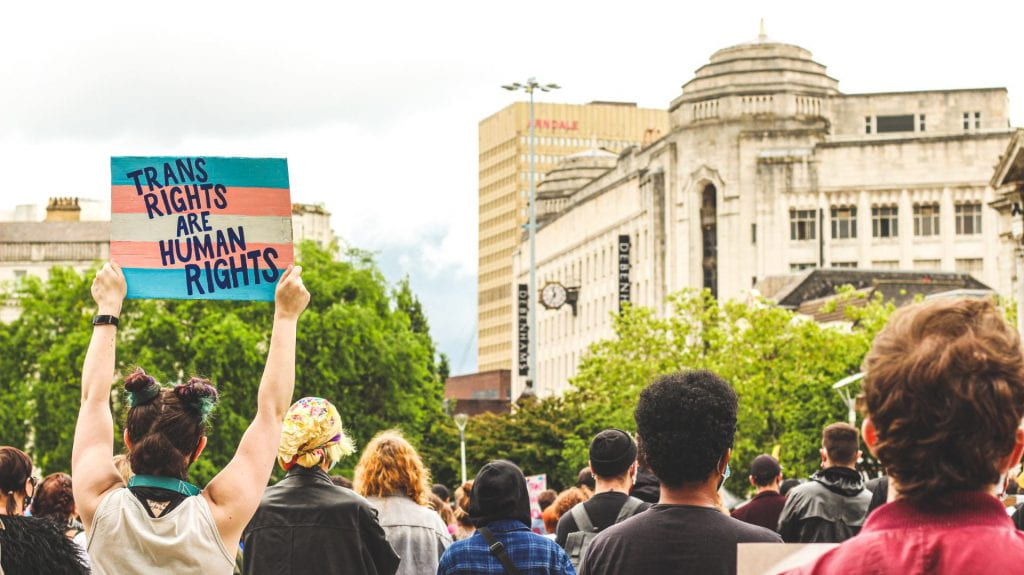
Sometimes protesters act in ways that some people consider shameless to fight for their rights.
In a new chapter–“Shameless Interruptions Finding Survival at the Edges of Trans and Queer Migrations“–published in Queer and Trans Migrations: Dynamics of Illegalization, Detention, and Deportation, Dr. Ruben Zecena (assistant professor in the Department of English) analyzes acts of protest in trans and queer migrant communities and shows how intersectional communities use disruptive protest to speak truth to power. “I argue that the shameless interruption is particularly useful to understand how trans and queer migrants negotiate the complex relationship between alienation in dominant LGBT communities and a commitment to what Karma Chávez (2013) calls a queer migration politics; these politics grapple with coalition building among migrant and LGBT communities.”
The chapter analyzes online activist letters and videos of protests to reveal how trans and queer migrants use disruption to advocate for themselves. It also shows why it is important to consider race, class, status, gender, and other identities to fully understand the dynamics of protest. “This chapter aims to consider shamelessness as a survival strategy that problematizes theoretical projects in queer studies that omit issues of race and racism,” Zecena writes.
Zecena describes the case of Jennicet Gutiérrez, a TransLatina activist who interrupted President Obama at a White House Pride reception celebrating Pride Month two days before the Supreme Court ruling that legalized marriage equality. Gutiérrez’s protest demanded fixing the immigration policy increasing deportations and deteriorating living conditions for trans migrants. “In a room full of white gay men taking selfies and applauding Obama for his leadership on ‘LGBT issues,’ Gutiérrez’s words and actions critiqued the discrepancies between normative LGBT accomplishments and the dire living conditions of undocumented trans women under President Obama,” Zecena writes.
In another case, two trans and queer migrant grassroots organizations in Arizona protested corporate and police injustices during a Pride Month parade. Writes Zecena, “Banners from Pueblo organizers included slogans such as, ‘Police out of Pride’ and ‘No Justice No Pride’ …that critiqued the presence of the police at the parade as well as Pride’s relationships with corporations like Bank of America that channel money into the prison industrial complex.”
In both cases, eventgoers complained about the inappropriateness and shamelessness of the protests. Zecena explains that when the eventgoers boo the protesters, they showed favoritism for particular identities over others. Eventgoers reinforced spaces “that [celebrate] whiteness and a patriarchal construction of gay sexuality and citizenship,” Zecena writes.
In sum, Zecena explains the need for shameless protests to allow for all voices to be heard. “These interruptions create useful and meaningful opportunities to acknowledge, respect, and listen to the imaginaries and practices that trans and queer migrants employ…Shameless interruptions can also lead to coalition work among minoritarian subjects.”
